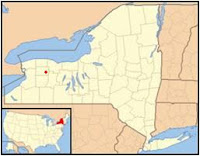By Al Cross
Institute for Rural Journalism and Community Issues
The
U.S. Department of Labor will revise and apparently relax the controversial regulation that would have allowed children under 16 to do farm work only on farms wholly owned by their parents.
An unnamed department official told reporters on a conference call this afternoon that the new rule will take into account changes in corporate structure over the past few decades and the devices that farm families use to transfer ownership between generations, sometimes gradually. That was a major point of contention for farmers who objected to the proposal.
Department officials said they hope to propose a revised rule by early summer. Meanwhile, they said the department would revert to a less strict enforcement policy, last used 10 or more years ago, regarding child labor.
A 1966 federal law that prohibits children from doing certain hazardous jobs on farms "allows children of any age who are employed by their parent,
or a person standing in the place of a parent, to perform any job on a
farm owned or operated by their parent or such person standing in the
place of a parent," a department
press release noted.
In 2002 or perhaps earlier, the department began interpreting "owned" to mean "wholly owned," and the proposed regulation would have formalized that policy, the department official said. Now, until the revised regulation is adopted, it will revert to the previous definition of "substantially owned."
Asked what that phrase means, the official talked instead about the rule to come: "It clearly will allow for a variety of corporate structures and family owners of a farm while still meeting the intent of Congress that the parent is in a unique position to look out for the welfare of the child in that context."
The new rule could also apply to grandchildren, nieces and nephews. Labor Secretary Hilda Solis said in the press release that her agency "appreciates and respects the role of parents
in raising their children and assigning tasks and chores to their children on farms and of relatives such as grandparents, aunts and
uncles in keeping grandchildren, nieces and nephews out of harm's way."
The proposed regulation stirred many complaints from farm and members of Congress. When the revised regulation is published, there will be another comment period, probably 60 days, before a final and perhaps further revised version of the rule can take effect. The department will take into account comments “particularly from rural
communities and owners of family farms,” said the department official, who spoke on the condition that she be identified in that manner.
For more mainstream media coverage, see
The Kalamazoo Gazette,
the
Greeley Tribune or
The Wall Street Journal, which were among the outlets with reporters on the call who asked questions.


















